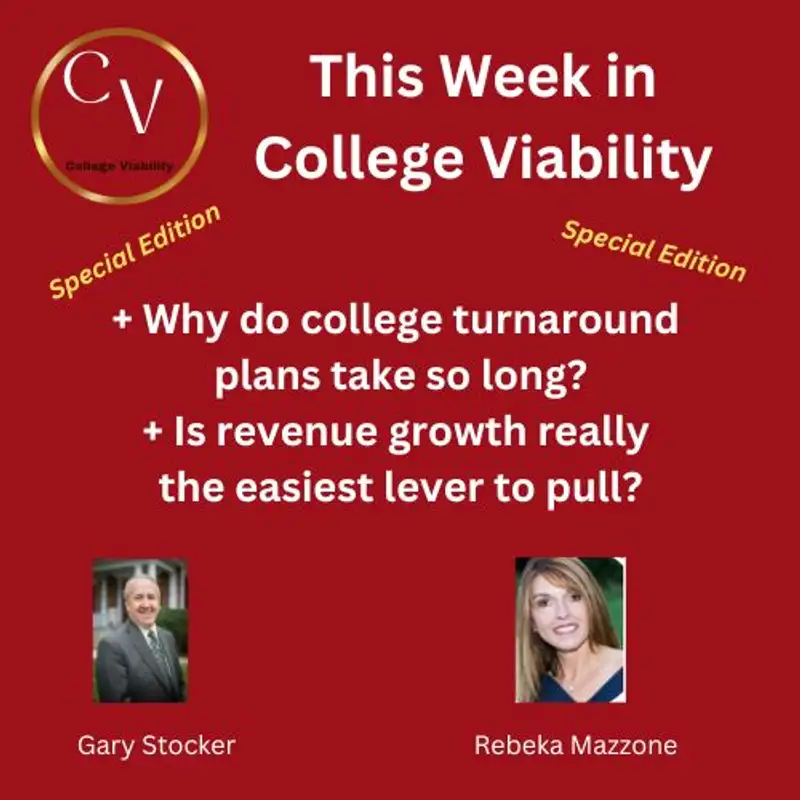
TWICV special with Rebeka Mazzone CEO of FuturEDFinance
- Tell us briefly about Futuredfinance.
- Talk about finance as a lagging indicator of a college's financial health.
- I spend a lot of time at institutions that have tried to solve this (operating deficit) problem with quick fixes. They tried short-term bumps in their spending rates, a one-time sale of property, seeking more donations, and making small staffing changes. More than two years later, most concede that they’re still running significant deficits, and their cash runway is getting shorter.
Question: - Why do college turnaround plans take so long?
Students cannot be left hanging, need to sunset and notify accreditors or plans, shared governance requires faculty to be part of this decision and process. Even eliminating faculty requires 1 year notice from time of contract renewal. 2 years before you start to see academic savings, 4 years to fully realize, all while fighting inflation.
5. You have written about the 7 imperatives to be a finance strategist. Share the top 2 or 3 for those college leaders who are watching some of their last dollars circle the financial drain.
6. You have written that "During a transformation, the easiest lever to pull for many organizations is to grow revenue. If you grow, you need more people. This is true in any business, but especially true in a service business like education where our people are our product."
7. Is it realistic in today's overcrowded HE market to think that financially struggling colleges can drive materially significant new, net revenue from new programs or majors? You and I have talked about the 'per FTE' or other ratios as being critical to measuring performance. What is your experience with you clients and others using those types of ratios to help manage their business?
8. Elephant in the room question: FAFSA Debacle's impact: Best case scenario? Worst case?
5. You have written about the 7 imperatives to be a finance strategist. Share the top 2 or 3 for those college leaders who are watching some of their last dollars circle the financial drain.
6. You have written that "During a transformation, the easiest lever to pull for many organizations is to grow revenue. If you grow, you need more people. This is true in any business, but especially true in a service business like education where our people are our product."
7. Is it realistic in today's overcrowded HE market to think that financially struggling colleges can drive materially significant new, net revenue from new programs or majors? You and I have talked about the 'per FTE' or other ratios as being critical to measuring performance. What is your experience with you clients and others using those types of ratios to help manage their business?
8. Elephant in the room question: FAFSA Debacle's impact: Best case scenario? Worst case?
I think we are seeing a shift in consumer expectations around the value of a degree, so while some of this was an anomaly, I think we are seeing a reduction in population along with reduced demand which started with COVID and made the gap year more successful, that is now the 2-3 gap years. How will we engage those prospects who are no longer traditional, but the are not adult learners either.
